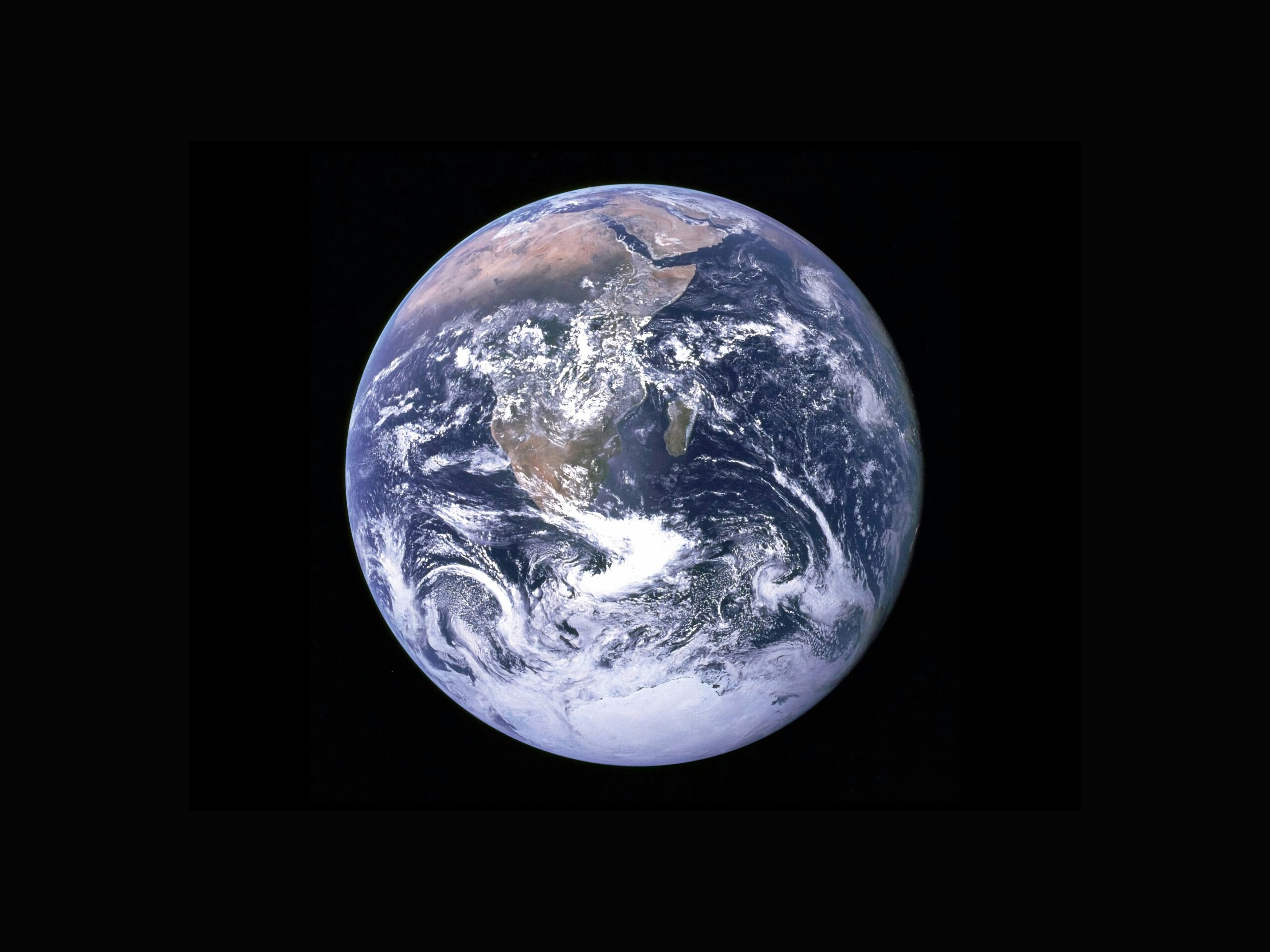Photo by NASA
Seven of nine boundaries now transgressed
The 2025 Planetary Health Check reveals that seven of nine planetary boundaries have now been breached, with ocean acidification joining the danger zone for the first time. The assessment demonstrates that more than three-quarters of Earth’s support systems are not in the safe zone, marking an escalating planetary crisis.
Johan Rockström, Director of the Potsdam Institute for Climate Impact Research (PIK), said: “More than three-quarters of the Earth’s support systems are not in the safe zone. Humanity is pushing beyond the limits of a safe operating space, increasing the risk of destabilising the planet.”
The seven breached boundaries are climate change, biosphere integrity, land system change, freshwater use, biogeochemical flows, novel entities, and ocean acidification. All seven boundaries show worsening trends.
Ocean acidification crosses critical threshold
Research by scientists from Plymouth Marine Laboratory, NOAA, and Oregon State University has found that by 2020, acidification levels in approximately 60% of the ocean at depths near 200 metres had exceeded what scientists deem safe. Since the start of the industrial era, the ocean’s surface pH has fallen by around 0.1 units, representing a 30-40% increase in acidity and pushing marine ecosystems beyond safe limits.
The breach is driven mainly by fossil fuel burning and worsened by deforestation and land-use change, degrading the oceans’ ability to act as Earth’s stabiliser. Cold-water corals, tropical coral reefs, and Arctic marine life are especially at risk as acidification continues to spread and intensify.
Impacts already visible in marine ecosystems
Tiny sea snails known as pteropods are already showing signs of shell damage. As an important food source for many species, their decline affects entire food chains, with consequences for fisheries and ultimately for people.
Ocean acidification has caused near-collapse of oyster hatcheries in North-West America by preventing juvenile oysters from building shells, demonstrating the tangible economic impacts already being felt.
Levke Caesar, Co-lead of Planetary Boundaries Science Lab and one of the lead authors of the report, commented: “The movement we’re seeing is absolutely headed in the wrong direction. The ocean is becoming more acidic, oxygen levels are dropping, and marine heatwaves are increasing. This is ramping up pressure on a system vital to stabilise conditions on planet Earth. This intensifying acidification stems primarily from fossil fuel emissions, and together with warming and deoxygenation affects everything from coastal fisheries to the open ocean The consequences ripple outward impacting food security, global climate stability, and human wellbeing.”
Deep ocean impacts more severe than anticipated
Professor Helen Findlay of Plymouth Marine Laboratory warned that deeper ocean ecosystems may suffer greater impacts than previously anticipated, stating: “Most ocean life doesn’t just live at the surface – the waters below are home to many more different types of plants and animals. Since these deeper waters are changing so much, the impacts of ocean acidification could be far worse than we thought. This has huge implications for important underwater ecosystems like tropical and even deep-sea coral reefs that provide essential habitats and nursing refuge for many species, in addition to the impacts being felt on bottom-dwelling creatures like crabs, sea stars, and other shellfish such as mussels and oysters.”
‘Evil twin’ of climate change
Ocean acidification has been dubbed the “evil twin” of climate change, though it remains often overlooked. Professor Steve Widdicombe of PML, co-chair of the Global Ocean Acidification Observing Network, emphasised that acidification isn’t just an environmental issue—it’s “a ticking timebomb for marine ecosystems and coastal economies.”
Widdicombe warned that the impacts will be felt in very real terms: “from the coral reefs that support tourism to the shellfish industries that sustain coastal communities, we’re gambling with both biodiversity and billions in economic value every day that action is delayed.”
Urgent calls for policy action
Dr Sylvia Earle, oceanographer and Planetary Guardian, said: “The Ocean is our planet’s life-support system. Without healthy seas, there is no healthy planet. For billions of years, the ocean has been Earth’s great stabiliser: generating oxygen, shaping climate, and supporting the diversity of life. Today, acidification is a flashing red warning light on the dashboard of Earth’s stability. Ignore it, and we risk collapsing the very foundation of our living world. Protect the ocean, and we protect ourselves.”
Jessie Turner, Director of the Ocean Acidification Alliance, urged policymakers to elevate acidification on par with climate and biodiversity, stating: “we are running out of time and what we do – or fail to do – now is already determining our future.”
Interconnected planetary crisis
Boris Sakschewski, Co-lead of the Planetary Boundaries Science Lab and lead author, added: “The interconnections between the planetary boundaries show how a planet under pressure both locally and globally can impact everyone, everywhere. Securing human wellbeing, economic development, and stable societies requires a holistic approach where collaborations to find solutions across all sectors need priority.”
Evidence that reversal is possible
Only two boundaries remain within safe limits: loading of aerosols (air pollution) and the stratospheric ozone layer. Decades of international action, including the Montreal Protocol and shipping regulation, demonstrate that policy interventions can reverse negative trends.
Rockström said: “We are witnessing widespread decline in the health of our planet. But this is not an inevitable outcome. The drop in aerosol pollution and healing of the ozone layer, shows that it is possible to turn the direction of global development. Even if the diagnosis is dire, the window of cure is still open. Failure is not inevitable; failure is a choice. A choice that must and can be avoided.”
President Juan Manuel Santos, Co-Vice Chair of the Planetary Guardians, stated: “We are facing a planetary emergency. The breach of the Ocean Acidification boundary is a stark scientific warning and a moral call to action. Without healthy oceans, peace, prosperity and stability are at risk everywhere. We must act now with courage and collaboration to safeguard this life-support system for future generations.”
